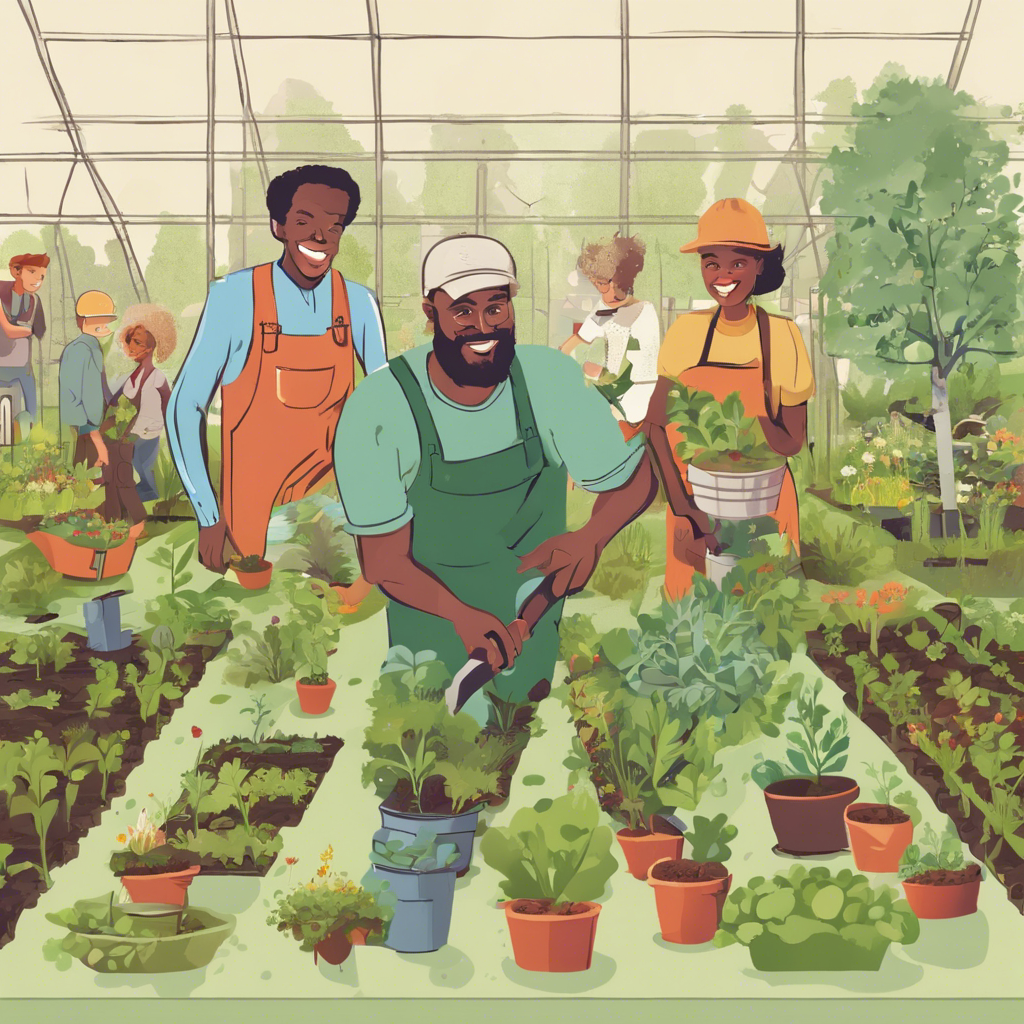The Rise of Community Gardens: Cultivating Unity and Resilience

How community gardens are transforming neighborhoods and fostering a sense of belonging
In an era of urbanization and disconnectedness, community gardens have emerged as a powerful force in bringing people together and revitalizing neighborhoods. These green spaces, once dismissed as mere patches of land, are now transforming into vibrant hubs of activity, fostering a sense of unity and resilience among residents. From growing fresh produce to providing a space for social interaction and education, community gardens have become catalysts for positive change. In this article, we explore the rise of community gardens and their impact on local communities.
1: A Space for Growth and Nourishment
Community gardens offer a unique opportunity for individuals to reconnect with nature and grow their own food. With the increasing awareness of the importance of sustainable living and healthy eating, these gardens have become a lifeline for many urban dwellers. Not only do they provide access to fresh, organic produce, but they also promote physical activity and mental well-being. Residents who participate in community gardens often report improved nutrition, increased physical fitness, and a greater sense of self-sufficiency.
2: Cultivating Unity and Social Cohesion
Beyond the physical benefits, community gardens serve as gathering places for people from diverse backgrounds. These green spaces break down social barriers and foster a sense of belonging within neighborhoods. Residents come together to share gardening tips, exchange recipes, and organize community events. The act of tending to a garden becomes a shared experience, creating opportunities for intergenerational connections and cultural exchange. In a world where digital communication often replaces face-to-face interaction, community gardens provide a much-needed space for genuine human connection.
3: Education and Empowerment
Community gardens not only provide a platform for hands-on learning but also empower individuals to take control of their own food production. Many gardens offer workshops and educational programs on topics such as composting, organic gardening techniques, and sustainable agriculture. These initiatives equip residents with valuable skills and knowledge, enabling them to make informed choices about their food consumption and environmental impact. By engaging with the natural world and learning about the food system, individuals become active participants in creating a more sustainable future.
4: Resilience in the Face of Challenges
Community gardens have proven to be resilient in the face of various challenges, including economic downturns and environmental crises. These green spaces act as buffers against food insecurity by providing a local source of fresh produce. During times of crisis, such as the recent COVID-19 pandemic, community gardens played a vital role in supporting vulnerable populations, supplying nutritious food to those in need. The ability of these gardens to adapt and respond to changing circumstances highlights their importance in building resilient communities.
Conclusion:
Community gardens have emerged as powerful agents of change, transforming neighborhoods and fostering a sense of unity and resilience among residents. From providing access to fresh produce and promoting healthy living to creating spaces for social interaction and education, these green spaces have become catalysts for positive transformation. As we navigate an increasingly urbanized and disconnected world, the rise of community gardens offers a glimmer of hope, reminding us of the importance of nature, community, and our shared responsibility to create a sustainable future.










